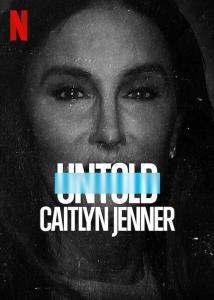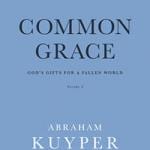Why is it that our great figures always seem to be in pain? Not all of them, of course. At least, I don’t want to make a universal statement since I don’t know every figure in every field. But of the fields I do know about, it seems that those at the top of their profession are always struggling with… something. I’m teaching a class right now on Country music, and there it’s almost always substance abuse combined with a deeply impoverished upbringing. We see something similar in politics. It’s true that your average Congressman or Member of Parliament or whatever might have a perfectly normal life. But the truly great political figures–the Lincolns, FDRs, Churchills, etc–always seem to be wrestling with extreme illness or substances or depression or any other number of other challenges in life.
I don’t know that sports is the same as these other fields, but the last two episodes of the Netflix series Untold, Deal with the Devil (about Christy Martin, reviewed here) and Caitlyn Jenner (which dropped this week) both heavily emphasize the inner struggle and pain these great athletes had to deal with.
As with last week’s episode, there is a ton of stuff in Untold: Caitlyn Jenner that I’m not competent to engage with. I know little about the transgender movement, and possibly even less about the decathlon. Apparently, the decathlon does not involve riding a bicycle while shooting a gun. Nor do decathletes do all of their events in one non-stop event. (So I did learn something here!) For that matter, I’m a little bit unclear exactly what part of this is “untold”, possibly again because I’m ignorant of both sports and the contemporary issues surrounding Jenner. I don’t know that anything really new was included in this documentary, but it’s entirely possible that it was. At the very least much of it was new to me!
And as with previous episodes of the series: Caitlyn Jenner is well-made and interesting to watch (though again, if this is all old news to you it may not be as interesting as it was to me), with specific focus on one aspect of the event/person in question. And undoubtedly people who do follow sports and contemporary issues will have more to say about this episode than I do.
But again, something that jumped out at me–particularly in light of this blog’s ongoing Common Grace study–is that question of pain and greatness. Certainly not everyone who experiences pain rises to the top of their profession. But it does seem to be the case that those who are at the top have some kind of trauma in their past or present. Why is this the case? Couldn’t God have made us so that we can create or excel or govern or whatever without personal suffering dancing attendance on us along the way? (Important note here: by “we” I don’t mean “me”, as I’ve largely been without extreme suffering in my life, which tells you that I am not at the top of my profession.) The mandate to work and to steward creation precedes the fall, and yet those who seem to be best at that work also suffer greatly in a fallen world. Is there something in the nature of pain that elevates a few to levels of exceptional achievement? Just what is the connection here?
I wish I had an easy, slam-dunk answer. Kuyper suggests that artists (to pick just one group of people) see what we can’t, capture it within themselves, and then express it in means that we non-artists can understand. (Kuyper, Wisdom and Wonder, pg 164-165) I think generalizing that might give us a good way to look broadly at greatness. The great athlete, politician, musician, etc, are all those who can see and do more than we can, and who bring what they have seen and what they have done to us in what Kuyper calls a common grace “priestly service.” (Wisdom and Wonder, 164) Maybe by suffering more, these individuals who can already see more than we can are given a yet broader vision of the nature of reality (for the artists), the ability to run a bit faster or jump a bit higher (for the athletes), or lead with greater skill and charisma (for the politicians).
Or maybe it’s something else entirely. Again, I don’t know. I do know that Netflix has landed yet another solid episode in a series that so far has very much been worthwhile.
Dr. Coyle Neal is co-host of the City of Man Podcast and an Associate Professor of Political Science at Southwest Baptist University in Bolivar, MO













